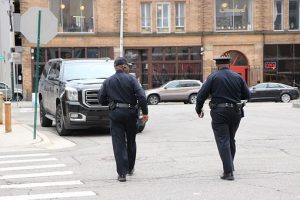Facts Still Matter When Trying to Enforce Arbitration Agreement Under New Jersey Employment Law
The recent trend has been for courts to find arbitration agreements enforceable under both Federal and New Jersey employment law. However, prior to enforcing an arbitration agreement, courts must find that there was actually agreement. This simple concept was emphasized again by the Appellate Division of  the Superior Court of New Jersey in the case of Christina Imperato v. Medwell, LLC.
the Superior Court of New Jersey in the case of Christina Imperato v. Medwell, LLC.
In that case, Christina Imperato was hired by Medwell, a chiropractic office. She had a limited education and no prior medical or office experience. When she was hired, Dr. Ali Mazandarani sat with her and had her sign some pre-employment forms. They were not explained; Mazandarani sat with her, handed her the forms, and pointed to where she should sign. She was not given the opportunity to read these or take them home. The documents included a five page agreement which required that employment disputes be resolved by arbitration rather than court.
Imperato sued Medwell in the Superior Court of New Jersey for sexual harassment in violation of New Jersey’s Law Against Discrimination. Medwell’s attorneys filed a motion asking the court to dismiss the lawsuit and order the case to arbitration. The trial judge allowed discovery, including depositions, on the limited question of whether Imperato signed the arbitration agreement, and if so whether she signed it voluntarily and knowingly. The judge then held a hearing with live testimony on that single issue.
 New Jersey Lawyers Blog
New Jersey Lawyers Blog


 law enforcement officer disciplinary records to promote transparency and confidence in police departments and internal affairs disciplinary procedures, as well as to broaden the discovery available to criminal defendants. Those issues are worthy of a dissertation in themselves, but here I want to focus briefly on their effect in New Jersey employment litigation.
law enforcement officer disciplinary records to promote transparency and confidence in police departments and internal affairs disciplinary procedures, as well as to broaden the discovery available to criminal defendants. Those issues are worthy of a dissertation in themselves, but here I want to focus briefly on their effect in New Jersey employment litigation.
 more friendly to employers. However, there are exceptions. For instance, public employees sometimes have additional remedies under federal employment law, and employees can litigate their state and federal law claims together in federal court. A good example of this can be seen in a decision in
more friendly to employers. However, there are exceptions. For instance, public employees sometimes have additional remedies under federal employment law, and employees can litigate their state and federal law claims together in federal court. A good example of this can be seen in a decision in 
 tort claim notice must be served in the employment context.
tort claim notice must be served in the employment context. under New Jersey employment law, but in its application let the exceptions swallow the rule.
under New Jersey employment law, but in its application let the exceptions swallow the rule. case has a long and tangled history, but this decision illustrates several important employment law rules affecting New Jersey government employees.
case has a long and tangled history, but this decision illustrates several important employment law rules affecting New Jersey government employees. enforceability of agreements in employment contracts to arbitrate disputes under New Jersey
enforceability of agreements in employment contracts to arbitrate disputes under New Jersey